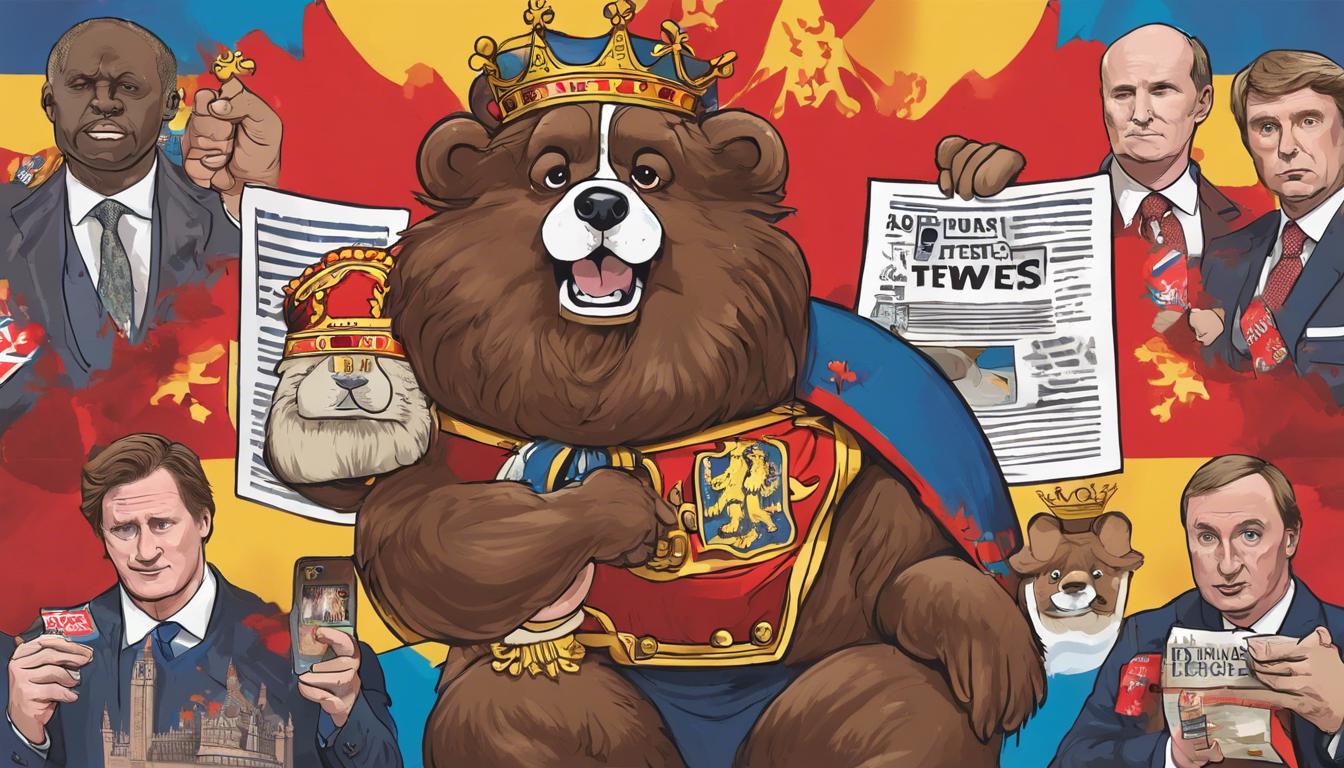From dispelling rumors about the British monarch to pranking prominent media figures and reflecting on Russian political leadership, the UK and the world grapple with the impact of misinformation and political dynamics.
In separate developments across the UK and beyond, misinformation and political dynamics have made headlines, illustrating the complexity of current events and the challenges they pose.
In the UK, Chancellor of the Exchequer Rishi Sunak dispelled rumors claiming that King Charles had passed away, following false reports circulated by some Russian media. This misinformation led to confusion until the British Embassy in Ukraine stepped in to clarify that the monarch was indeed alive. The erroneous claim seemed to be part of a broader misinformation campaign, with Russian state-owned outlets at the forefront. Despite these challenges and his recent cancer diagnosis, King Charles expressed gratitude for public support as he postponed public duties for treatment.
In a lighter twist on the theme of misinformation, UK-based YouTubers Josh Pieters and Archie Manners pranked U.S. media personality Tucker Carlson. They fabricated a story about being dismissed from Kensington Palace due to a manipulated image of Kate Middleton, duping Carlson into planning an interview. The prank, which aimed to underscore the ease of spreading falsehoods in the media, was revealed before the interview aired. Pieters and Manners have been known for similar stunts, emphasizing the need for vigilant fact-checking in journalism.
Meanwhile, the aftermath of the 2024 Russian presidential election has been effectively captured by cartoonist Ben Jennings in The Guardian. His illustration reflects on Vladimir Putin’s landslide victory, portraying the long-standing leader’s continued dominance in Russian politics, which prompts concerns regarding democracy and freedom in the country. Jennings’ work evokes conversations about the implications of Putin’s rule, not just domestically but also for Europe and global politics.
These incidents, ranging from grave concerns about misinformation affecting public perception of the British monarchy to creative commentaries on political events, highlight ongoing challenges in distinguishing truth from falsehood and understanding the implications of political leadership in today’s rapidly evolving world.













